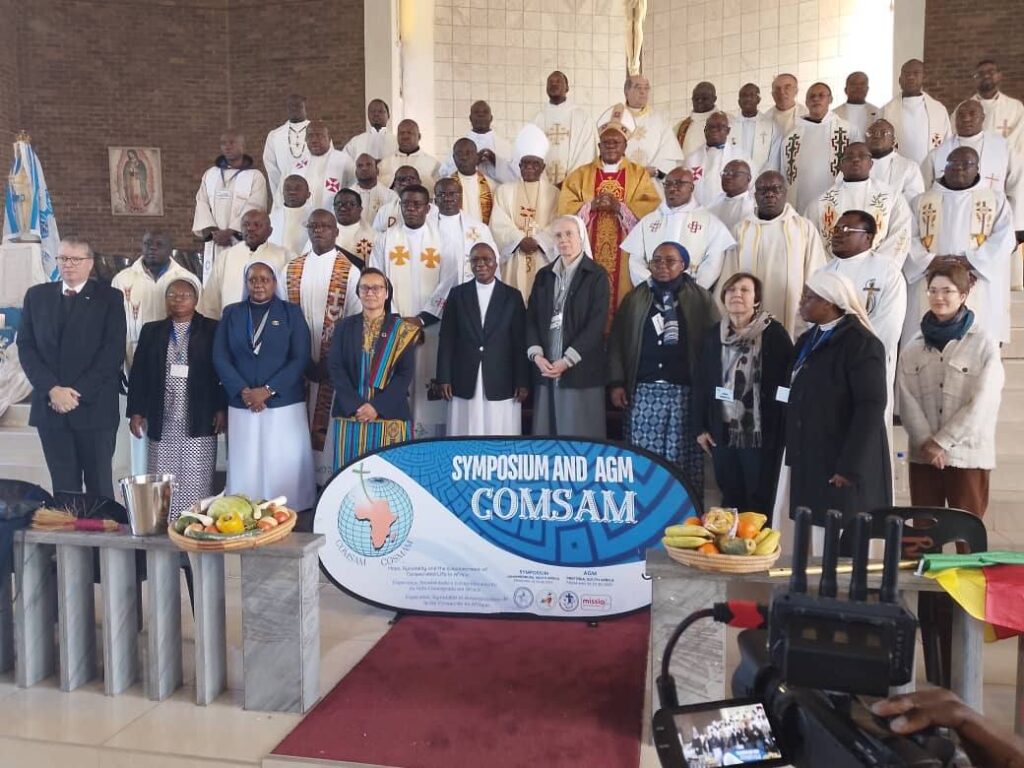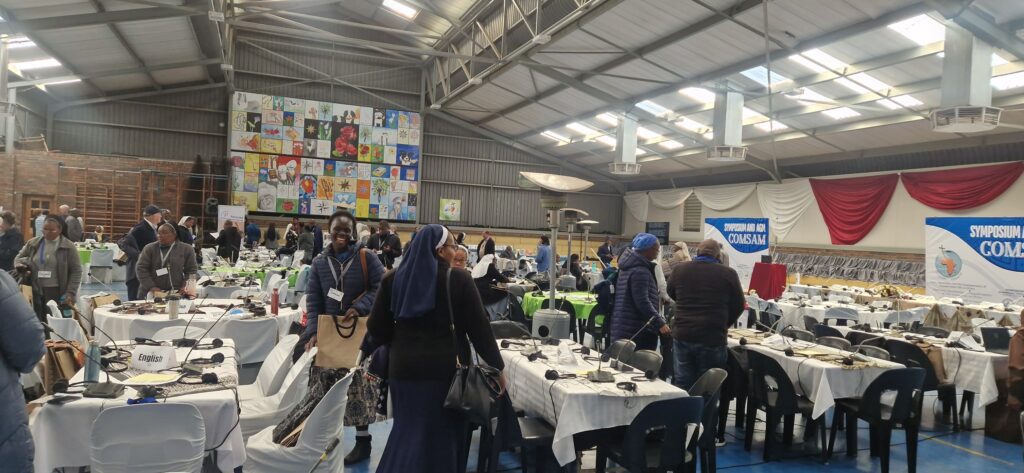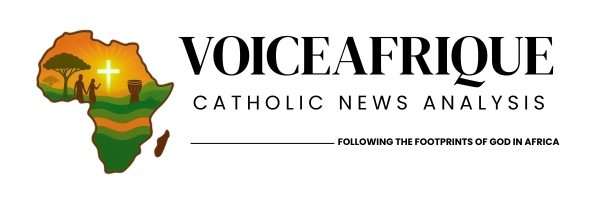Something profound is stirring in the heart of Africa, a quiet but unmistakable spiritual awakening led by African women religious. In a continent scarred by inequality yet rich in faith, these consecrated women are becoming the beating heart of a renewed Catholic Church. This was powerfully affirmed just weeks ago at the 6th General Assembly and Symposium of Confederation of the Conferences of Major Superiors of Africa and Madagascar (COMSAM) in Pretoria. Far from being a routine gathering, the assembly became a rallying cry, a bold articulation of a synodal, hopeful, and empowered future for consecrated life in Africa. If the energy of that moment is any indication, the Church in Africa is rising, and it is rising through the voices, witness, and ministries of its women religious.
Indeed, the growth and impact of African women religious provide compelling evidence of this spiritual awakening. A 2020 study by the Center for Applied Research in the Apostolate (CARA) indicated that Africa has the fastest-growing number of women religious globally, with a significant increase in vocations over the past two decades. For example, in countries like Nigeria, the number of women religious has more than doubled since the early 2000s, reflecting a vibrant and expanding presence.
“African women religious are becoming the beating heart of a renewed Church — walking together in synodality, breaking the silence around injustice, and shaping communities where hope, healing, and accountability go hand in hand.”
Sr Helen Kasaka

Furthermore, ASEC (African Sisters Education Collaborative) reports that over 5,000 African sisters have pursued higher education through their programs, demonstrating a commitment to professional development and leadership that directly impacts their ministries in education, healthcare, and social justice. This investment in their formation enhances their capacity to lead and implement synodal initiatives effectively.
Walking Together, African Style
“Hope sets us in motion… It’s the impetus that pushes us to walk together, to listen, to discern, and to change our outlook.” These aren’t just pretty words from Cardinal Fridolin Ambongo Besungu and Cardinal Stephen Brislin; they’re the very heartbeat of synodality. It’s about a journey shared, not a path dictated. Imagine the powerful resonance of religious men and women, walking in communion at Regina Mundi in Soweto, at the Union Buildings, and Freedom Park in Pretoria, places etched with the memory of struggle and liberation. This isn’t just theory; it’s a lived experience of solidarity that deeply resonates with the African spirit.
The commitments born from this Assembly are breathtakingly practical and deeply rooted in this shared journey. Consecrated persons are committing to seeing Africa through the eyes of Jesus Christ to build a better continent. This isn’t just about prayer; it’s about action. It’s about setting up Justice, Peace, and Integrity of Creation (JPIC) commissions to stand with the vulnerable. It’s about nurturing communities that champion peace and justice, becoming true catalysts for communion and prophetic witnessing. In a beautiful embrace of local wisdom, they’re adopting African values like palaver (communal discussion) and Ubuntu (I am because we are), forging a new spiritual culture that trains and truly listens to the laity, inviting everyone to co-create the Church’s future. This collective spirit echoes the continent’s own journey of independence and self-determination, now channeled into a renewed spiritual and social mission.
Beyond Silence: A Synodal Call to Accountability
But here’s where it gets real. True Synodality isn’t just about celebrating shared successes; it’s about bravely confronting uncomfortable truths. Sr. Linah Siabana’s poignant presentation, “Breaking the Silence: A Call for Safer Religious Communities in Africa,” was a moment of profound courage at the Assembly. She reminded us that you can’t have genuine hope or empowerment if abuse lurks in the shadows. A synodal Church listens to every voice, especially those that have been silenced by pain and stigma.
This isn’t easy work. Cultural, social, and systemic factors across Africa can make speaking out incredibly difficult. But Sr. Siabana’s message was clear: we must acknowledge these realities. We must create spaces where survivors are heard, believed, and supported. This means fostering open dialogues and educational initiatives to dismantle the walls of silence, ensuring that our religious communities are not just spiritual homes, but truly safe homes for everyone. The commitment from Pretoria to “protect vulnerable people against all kinds of abuse” is a powerful promise – one that demands relentless follow-through and transparent accountability. This commitment to internal healing is crucial for the Church to maintain its moral authority and truly be a shelter for all.
Furthermore, the commitment to foster internal healing and ensure safe communities remains a paramount and shared priority. The courageous voices breaking the silence around abuse are creating a continental movement towards greater transparency, accountability, and robust support for survivors. This difficult but essential work is fundamental to the Church’s moral authority and its ability to be a true “shelter for all.”

Laboratories of Hope for a Prosperous Africa
The vision from Pretoria is nothing short of inspiring: consecrated communities becoming “laboratories of synodality, signs and sacraments of hope for the Church and the world.” This powerful statement was articulated by Cardinal Fridolin Ambongo Besungu, Archbishop of Kinshasa and President of SECAM (Symposium of Episcopal Conferences of Africa and Madagascar), during the COMSAM/COSMAM Assembly itself, reflecting the shared aspiration for consecrated life in Africa. Imagine that – vibrant hubs where open dialogue, mutual respect, and shared discernment aren’t just ideals, but daily practice. This is a Church that isn’t afraid to roll up its sleeves, to walk with the wounded, and to seek communion in profound love and solidarity. It’s a Church determined to not only evangelize but also to help lift Africa out of the systems that impoverish it, demonstrating a holistic approach to mission.
Synodality Across Africa: A Journey in Action
The spirit of synodality, this journey of walking together, is truly taking root and bearing fruit across the African continent. A compelling example is the ongoing diocesan and national synodal processes across various African nations in preparation for the global Synod on Synodality. Many dioceses have held extensive consultations, gathering inputs from lay faithful, religious, and clergy. For instance, the Catholic Church in Kenya saw widespread participation in its synodal consultations, with reports highlighting a strong desire for greater inclusion of women and youth in decision-making processes. Similarly, in Ghana, the dioceses reported high engagement rates, with specific calls for enhanced formation programs for the laity to empower their participation. These national syntheses, submitted to the Vatican, serve as concrete evidence of the widespread embrace and implementation of synodal practices at the grassroots level.
While each nation’s context brings its unique nuances, there’s a powerful common thread of shared commitment and emerging opportunities that resonate from vibrant communities in Nigeria, through the diverse landscapes of Kenya, and beyond. One significant commitment emerging across the continent is the strengthening of formation programs for both clergy and laity in synodal principles and practices. This includes workshops on active listening, discernment, and collaborative leadership, ensuring that the journey of walking together is not just a concept but a lived reality, deeply understood and practiced by all members of the Church.
Central to this transformative moment is the deepening of lay participation. The Church is recognizing the invaluable contributions of all baptized Christians, moving beyond traditional structures to truly empower its faithful. This means fostering environments where every voice, particularly those of women, youth, and the most marginalized, is not only heard but actively valued and integrated into the Church’s life and decision-making.
As the Church in Africa grapples with the challenges of cultural diversity, political instability, and socio-economic inequality, African women religious are emerging as prophetic voices and agents of synodal renewal. Drawing deeply from indigenous values such as palaver and Ubuntu, they embody a spirituality of listening, inclusion, and communal discernment. Through their leadership, witness, and tireless service, these women are reanimating ancient wisdom within ecclesial structures, fostering authentic dialogue, mutual accountability, and a vibrant sense of co-responsibility. In doing so, they are not only advancing the mission of evangelization but also shaping a Church that is more compassionate, just, and responsive to the cries of the poor. Their transformative presence offers a luminous path forward for the African Church and a powerful witness to the global Church.

